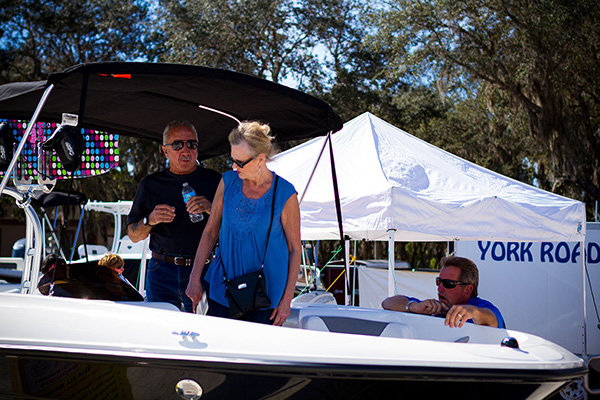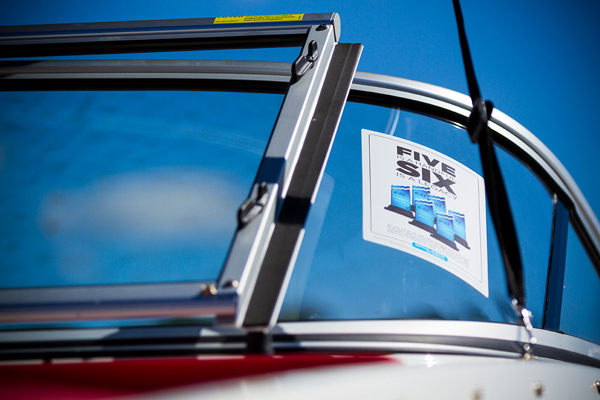Buying New vs. Used: Things to consider while you’re considering.

It is a question boat buyers have faced for decades. And, while there is no perfect answer, there are pros and cons to each, and a right and wrong way to go about it. Breaking it down, there are five key areas to consider:
Price
One of the first reasons people consider used boats is cost. Once a boat is 5-10 years old, the depreciation factor starts to cause a considerable gap between used boat prices and their comparable new counterparts—for the most part. However, value-priced new boats can often be close in price to many used alternatives, and come with all the advantages of buying anything new; warranty, ability to finance and the benefits of the most up-to-date technology (things I will expand on shortly). These all enter into a price vs. value analysis that can’t be ignored if you are to avoid the regret associated with many buying decisions.
Financing
Hand in hand with the price factor is ability to finance. If the used boat you are buying is not terribly old, its residual and loan value might make it a sound purchase that doesn’t deplete your savings to afford—provided your bank writes boat loans if you are buying from a private party. But as many used boats don’t qualify, it might need be a cash deal. On the flip side, new boats are easily financed and even give you the ability to add options and accessories to the amount financed, allowing you to outfit the boat how you want it and build it into your payment.

Quality
The advances made in boat and engine manufacturing in the past decade are considerable. The old adage “they don’t build them like they used to” can often be seen as GOOD news, as today’s products are ofter more reliable and maintenance free than their older counterparts. There are, of course, exceptions to this rule but, on the whole the quality factor almost always favors new.
Warranty
Even the best boats have issues from time to time. This is where warranty protection comes into play. New boats invariably come with warranties and used boats occasionally have either transferrable warranties from the original owner, or you can buy an extended, third party warranty. The extended warranty option often comes with conditions, however, such as excluding pre-existing problems, waiting periods, and deductibles that water down their value.

Service
Finally, regardless of whether you buy new or used, I suggest buying from an established boat dealer. Private party sales are recipes for post-sale regret as a private seller usually has no motive—or obligation—to take care of you should something break or be discovered shortly after the sale. Dealerships have reputations to protect and the profit from the sale of your boat (and others) allows them to take care of things professionally and they typically stand behind what they sell. It’s your best bet to not being sorely disappointed.
So before you make your decision, I urge you to consider these five factors and weigh your options. A little planning now can save you a world of regret later.
By Keith Yunger
President, Bayliner Boats
